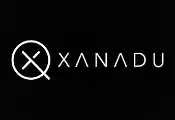Global Quantum Budgets Set to Surge by Nearly 20% as Confidence Grows Globally
January 22, 2025 -- New research from QuEra Computing, the leader in neutral-atom quantum computing, reveals growing confidence in quantum adoption, with global budgets for quantum applications projected to rise nearly 20% in 2025.
The findings show that while high costs, talent gaps, and uncertainty around ROI remain significant barriers, 65% of respondents feel prepared to adopt quantum within the next two to three years, while only 21% admit they are not yet ready to benefit from quantum technology. The findings were published today as part of QuEra’s Quantum Readiness Report 2025 and survey conducted with over 750 quantum computing academics, scientists and professionals across the globe.
According to the research, the projected growth in both confidence and investment reflects a growing recognition of quantum computing’s potential to address complex challenges and drive innovation in key sectors. Yet, adoption still faces significant challenges, with high costs (51%), a lack of skilled talent (45%), and unclear business value (45%) identified as the top barriers. To address these obstacles, organisations are prioritising cost-effectiveness (45%), access to cutting-edge technology (37%), and availability through cloud platforms (33%) as critical factors shaping their quantum purchasing decisions.
The research also revealed significant disparities in readiness between the US and Europe, reflecting a blend of optimism and ongoing challenges as the industry prepares for rapid growth.
The United States stands out as the leader in quantum computing adoption, with 70% of respondents globally and 74% of those based in the UK identifying it as the global leader. This reflects a strong ecosystem driven by government funding, academic excellence, and private sector innovation.
In contrast, confidence in Europe’s competitiveness remains comparatively lower. Only 14% of respondents believe the EU is leading in quantum computing adoption, while just 2% identify the UK as a leader. The results reflect respondents’ assessment of how different countries are progressing in adopting quantum computing and how well-positioned they are to play an important role in the global quantum industry.
Despite this, while most respondents agree that the US is leading the race, only 28% actively seek the best technology globally. Nearly half (48%) continue to source technology locally - either in-house (20%), from country providers (12%), or regional providers (16%) - underscoring the continued importance of localized solutions in the quantum ecosystem.
From a technological perspective, neutral atoms (33%) and superconducting qubits (31%) emerged as the most promising modalities for achieving scalable applications. These findings reflect growing consensus around the leading technologies driving the next phase of quantum innovation. Industries are increasingly leveraging quantum to tackle challenges such as molecular simulations in healthcare and risk optimization in finance.




































